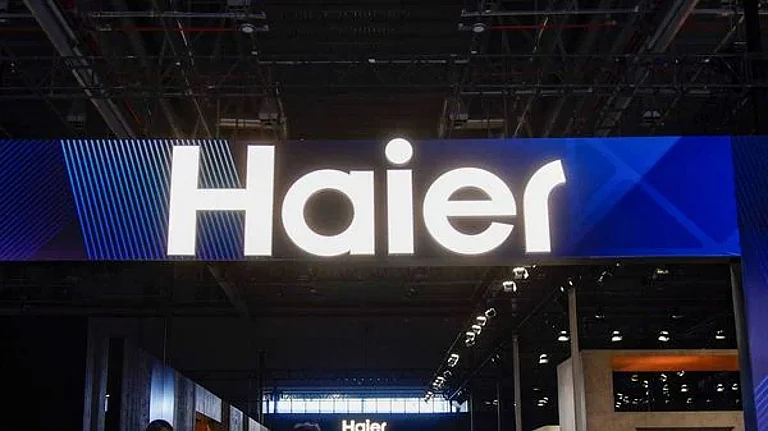It was an ironic coincidence that I enjoyed Ang Lee’s beautiful Life of Pi in the theatre just around the time I was gathering my thoughts to write about PI Industries. Ironic because while the film and the book it is based on are well known, this PI is in a relatively unknown business of manufacturing “productivity-enhancing agri-inputs”. Sounds complicated? In plain English, that’s agrochemicals, plant nutrients, speciality fertilisers and hybrid seeds. And while it’s true that PI Industries may sound obscure, it has been around for over 50 years, first as a pioneer and now as the largest seller of granular formulations and generic molecules. such as profenofos and ethion. That’s precious gibberish — in fact, millions of farmers turn to PI when they want to get rid of weeds, insects and fungi, or harvest a more abundant crop.
Agriculture is a pivotal sector: it ensures food security, alleviates poverty, generates employment and sustains development. Another stat we all learnt in high school and still remains true: 70% of India’s population relies on agriculture for employment. More contemporarily, agriculture contributes 17% of the nation’s GDP. But India’s rapid urbanisation and decline in arable land feeds anxiety more than it does the ever-exploding population.
The sector faces enormous supply-side bottlenecks in India: the hinterland is beset with labour shortages (wages account for 50% of the total variable cost of production); yield is stagnating (average annual growth in yield has only been 1.2% from 2001 to 2011). Naturally, policy-makers are keen on raising the agricultural growth rate to more than 6% for the Plan period of 2012-17. How? Higher productivity is directly proportional to better agri-inputs, which shows PI in a whole new light.
PI is one of the fastest growing and most profitable agri-input players in India. More importantly, nonlinearity is a concept where profit grows faster than sales and it is at the centre of my investment thesis for PI. The company’s CAGR in profits for the past five years is 67% whereas CAGR of sales is 18% — clearly profits are growing faster than sales owing to better asset utilisation and financial efficiency.
It’s called in-licensing
Exactly what does PI do? The company has 17 insecticide, five fungicide and four herbicide brands covering a broad spectrum of crops that are sowed in both seasons of the subcontinental farming cycle (rabi and kharif), which eliminates seasonality of sales. Some of PI’s successes are Clutch and Sanipeb (broad spectrum modern fungicides), Oval (broad spectrum insecticide) and Wicket (wheat herbicide). Osheen, an insecticide in-licensed from Mitsui Chemicals, was introduced in the first half of FY13, and word has it that PI has another potential category leader coming up soon. The company has also signed agreements with the patent holders of six new molecules to evaluate their potential in the Indian market, a process that takes up to nine months prior to launch.
PI’s edge is its in-licensing model. The company’s focus is on patented high-value-and-high-margin complex and early stage molecules, which have a wide range of end uses as imaging and printing chemicals, niche pharma intermediates and, of course, agri-inputs. But while it manufactures its own successful formulations, active ingredients and intermediates, the old horse cleverly leverages its strong franchise network for a no-R&D, non-competitive intellectual property business. It does this by exclusively licensing and marketing agri-molecules (that’s the aforementioned in-licensing) from global innovators whereas its competitors such as Rallis, Dhanuka Agritech and Insecticides India research and develop their own molecules, a costlier and riskier way of doing business.
The success of this approach is demonstrated by PI’s Nominee Gold, a herbicide for rice, which became a ₹100 crore agrochemical brand in the fastest possible time (it was launched in 2010 in collaboration with Japan’s Kumiai Chemicals). The company even licensed Nominee Gold to Rallis, which marketed it under a different name. In-licensed products currently fetch 50% of PI’s business — it used to be 10% just four years ago, which shows how much they have altered the company’s trajectory of success. PI has a pipeline of eight products lined up for three-four years.
Note, the management’s integrity and ethics are reflected in the way MNCs trust PI with their IP rights for custom synthesis (CSM), that is, production of organic drug compounds, and in-licensing. It makes the company the perfect low-cost contract research and manufacturing services (CRAMS) provider, a fact evidenced by PI’s thick order book of $315 million.
Bright future
I expect revenue growth of more than 20% per annum for the next couple of years, driven by CRAMs, core business and new products. The return ratios will look better as the product mix improves and economies of scale kick in. The agri-business will grow by 20-25% pa and CSM by 35% over the next three-four years. PI has two more CSM molecules lined up in H2FY13.
Even as the scary slide of the Indian rupee (it lost over 45% against the Japanese yen, 35% against the Chinese yuan, and 20% against the US dollar and the euro over the past five years) has left PI unfazed. Indeed, the currency worries have lowered the prices of Indian chemical products and given them a long-term advantage, especially at a time when the wage cost structure is rising in China. PI’s exports totalled ₹391 crore, which was 40% of total sales in FY12, and exports contribution will only rise as CSM grows.
PI’s new plant coming up in Gujarat should contribute ₹40 crore in sales during FY13 and an estimated ₹100 crore in FY14. The company has also lined up a capex of ₹150 crore over the next two years.
On the flip side, the company risks the failure of monsoons just as any farmer does. The loss of major CSM orders is another possible adversity and the management could also misjudge the potential of a molecule. But thus far, revenues have grown from ₹300 crore in FY06 to ₹900 crore in FY11, thanks to revenue CAGR of about 35% from the CSM division. That’s credible because PI sells innovative products that call for concept selling — and most of its brands occupy the No 1 or No 2 spot in their categories. There’s Nominee Gold, the star ₹100-crore performer, and also Biovita, a plant nutrient (₹50 crore), besides Foratox and Roket, both insecticides that also did handsomely over the same period.
PI’s CSM business is growing fast. It has planned all its capex only against assured revenues (the contracts are signed or being negotiated). The company can deliver revenues with incremental addition to overheads at its current level of investment. Now that it has scaled up well, PI can bask in the glow of strong revenue visibility. Predictably, it will do so with lower risk to its investments.
Manish Bhandari, Vallum Capital Advisors and its affiliates hold PI Industries stock











